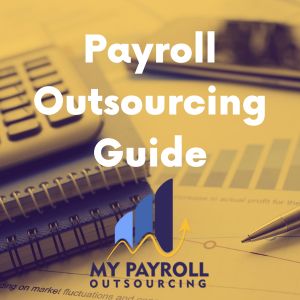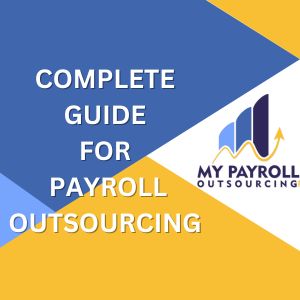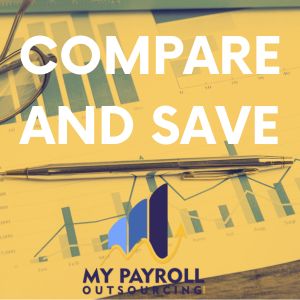
The Ultimate Guide to Payroll Outsourcing in 2023
In the world of business, efficient management of payroll is paramount. Yet, it can often be a complicated, time-consuming process rife with potential for error. For many businesses, outsourcing payroll services has become a viable solution that brings efficiency and reliability. This ultimate guide to payroll outsourcing in 2023 will help you understand what it entails, why it’s beneficial, and how to choose the best service for your business needs.
What is Payroll Outsourcing?
Payroll outsourcing is the practice of hiring an external firm to handle all payroll operations. This includes everything from calculating employee salaries, tax deductions, and benefits to ensuring compliance with tax laws and regulations. In essence, it’s entrusting the crucial aspect of employee compensation to experts in the field.
Key Components of Payroll Outsourcing
Payroll outsourcing services typically cover:
- Employee salary calculations
- Tax deductions and filing
- Compliance with labor and tax laws
- Employee benefits management
- Production of pay slips
- Year-end tax document production (such as W-2 and 1099 forms in the US)
Why Outsource Payroll?
Outsourcing payroll has several significant advantages that make it an attractive choice for many businesses.
Cost-Effectiveness
For many small to medium-sized enterprises (SMEs), maintaining an in-house payroll team can be expensive. Payroll outsourcing often turns out to be more cost-effective, eliminating the need for full-time payroll staff, software, and other resources.
Accuracy and Compliance
Payroll providers specialize in staying up-to-date with the latest tax laws and regulations. This expertise reduces the risk of errors, penalties, and compliance issues.
Time Savings
Outsourcing payroll frees up time for businesses to focus on core operations, strategy, and growth.
Enhanced Security
Professional payroll providers employ advanced systems to protect data, reducing the risk of identity theft, embezzlement, or tampering with company files.
Access to Technology
Outsourcing partners typically leverage the latest payroll technology, providing businesses with more accurate, efficient, and accessible payroll processing.

Choosing the Right Payroll Service Provider
Not all payroll service providers are created equal. Here’s what to look for when selecting the right partner:
- Experience and Reputation: Look for providers with a solid track record and positive client testimonials.
- Industry Expertise: Some providers specialize in certain industries. Choosing one with expertise in your sector can ensure they’re aware of specific regulations and norms.
- Range of Services: Ensure the provider can handle all the payroll functions you require, including tax filing, benefits administration, and compliance management.
- Customer Support: Good customer service is key. Ensure the provider offers reliable support in case of any queries or issues.
- Data Security: Check the provider’s data security measures to ensure your sensitive payroll data will be safe.
- Ease of Use: Your chosen provider should offer an easy-to-use interface where you can check details, run reports, and manage your account.
Implementing Payroll Outsourcing
Once you’ve chosen your provider, transitioning to an outsourced payroll model involves:
- Data Transfer: You’ll need to provide your new payroll provider with all necessary employee and company data.
- System Setup: The provider will set up your payroll system, including pay schedules, benefit plans, tax details, etc.
- Training: The provider should train you and your team on how to use their system for any necessary tasks, such as entering new employee data or checking reports.
- Running Payroll: Once everything’s set up, your provider will start running your payroll. You’ll need to provide them with any changes each pay period,like new hires, terminations, or changes in employee hours or benefits.
- Review and Adjust: Regularly review the reports and outputs from your provider to ensure accuracy. Maintain open communication with them to make any necessary adjustments
Potential Challenges and Solutions
While payroll outsourcing offers numerous benefits, it may also come with potential challenges. Being aware of these and knowing how to address them can ensure a smooth transition.
- Loss of Control: Outsourcing payroll means giving control of sensitive data and processes to an external party. To mitigate this, establish clear communication and reporting protocols with your provider.
- Data Security: Transferring sensitive employee information comes with inherent risks. Ensure your provider uses robust, secure systems and practices.
- Errors and Miscommunication: Mistakes can happen, and they can be costly when it comes to payroll. Regularly reviewing outputs and maintaining open, clear communication with your provider can help catch and correct errors quickly.
Payroll Outsourcing in 2023: The Future of Payroll
In 2023 and beyond, payroll outsourcing continues to evolve with technological advancements and changing workforce dynamics. Providers are offering more sophisticated services, leveraging AI and machine learning for increased accuracy and efficiency. They’re also adapting to the rise of remote work and the gig economy, making payroll more flexible and accessible.
Payroll outsourcing presents a viable solution for businesses looking to streamline operations, save time, and ensure compliance. By understanding the benefits and potential challenges, and by carefully selecting and partnering with the right provider, businesses can transform their payroll processes and focus on driving growth and success in 2023.
Top 5 Ways Payroll Outsourcing Can Reduce Payroll Errors
Payroll errors can be a significant issue for many businesses, particularly small business owners who juggle multiple roles and responsibilities. Errors can result in financial loss, compliance issues, and employee dissatisfaction. Fortunately, outsourcing your payroll responsibilities to professional payroll services can greatly reduce these errors. Here are the top five ways how:
1. Expert Knowledge and Experience
Payroll services have expert knowledge and extensive experience in handling payroll for a wide range of businesses and varying numbers of employees. This means they are adept at navigating the complex landscape of payroll calculations, tax codes, and regulatory requirements, which greatly reduces the likelihood of errors.
2. Utilization of Advanced Technology
Professional payroll services use advanced payroll software that automates the process of calculating pay, benefits, deductions, and taxes, significantly reducing the chance of manual calculation errors. The technology also keeps track of changes in tax codes and labor laws, ensuring compliance and accuracy.
3. Regular Updates and Audits
Outsourced payroll providers regularly update their systems to reflect changes in tax laws and other regulations. They also conduct periodic audits of their work to identify and correct any discrepancies or errors, further minimizing the risk of payroll mistakes.
4. Consistency and Standardization
By outsourcing your payroll, you bring in a level of consistency and standardization to your payroll processes. The service provider follows the same rigorous process for each payroll cycle, regardless of changes in the number of employees or other variables, ensuring accuracy and reducing inconsistencies that can lead to errors.
5. Time Management
For small businesses, time is a valuable asset. Managing payroll responsibilities can be time-consuming, especially when the number of employees begins to grow. This can lead to rushed or overlooked tasks, increasing the chance of errors. By outsourcing, you free up time, allowing the payroll service to meticulously handle each aspect of payroll management, reducing the potential for mistakes due to haste or distraction.

Payroll errors can be a significant burden for small business owners, leading to a myriad of potential issues. Fortunately, outsourcing payroll responsibilities to professional payroll services can greatly reduce these errors, saving your business time, money, and potential compliance headaches. By bringing expert knowledge, advanced technology, regular updates, consistency, and better time management to your payroll process, payroll services can help ensure the accuracy and reliability of your business’s payroll operations.
How Many Services Can Payroll Outsourcing Provide?
When considering payroll outsourcing, one might wonder about the range of services such providers can offer. The answer? A multitude. Payroll outsourcing goes beyond merely calculating wages and can provide a comprehensive suite of services to ensure your payroll processes are efficient, compliant, and stress-free. Here are some of the key services payroll outsourcing can provide:
Calculation and Disbursement of Wages
At its core, a payroll service will calculate and disburse wages to your employees. This includes calculating hourly wages or salaries, overtime, bonuses, and commissions. Many providers also offer direct deposit services, ensuring employees receive their wages promptly and securely.
Tax Calculation and Filing
One of the most complex parts of payroll is dealing with payroll taxes. Calculating the right amount of federal, state, and local taxes can be a significant challenge, but a payroll service provider specializes in just that. They’ll calculate, withhold, and pay the appropriate payroll taxes on your behalf. They’ll also file the necessary tax forms and documents, ensuring compliance with all government regulations.
Benefits Administration
Many payroll services also handle benefits administration. They can help manage health insurance, retirement plans, vacation and sick leave, and other employee benefits. This can be a major time-saver, ensuring your employees’ benefits are administered correctly and in a timely manner.
Compliance Management
Keeping up with changing labor laws and tax regulations can be a full-time job in and of itself. Payroll service providers specialize in staying on top of these changes. They ensure your business stays compliant with all relevant laws, providing peace of mind and reducing the risk of penalties or fines.
Reporting
Good payroll services will also provide comprehensive reporting. They’ll supply you with regular reports detailing wages, taxes, benefits, and more. This can be a valuable resource for budgeting, financial planning, and ensuring transparency in your business.
Employee Self-Service
Many providers offer employee self-service portals. These allow your employees to view their pay stubs, tax documents, benefits information, and more. This not only provides a valuable service to your employees but also reduces the administrative workload for your HR team.
Time and Attendance
Some payroll services also offer time and attendance tracking. This can streamline the process of tracking employee hours, overtime, and absences, ensuring accurate and efficient payroll calculations.
Payroll outsourcing provides a wide array of services that go far beyond merely calculating and disbursing wages. From tax filing and benefits administration to compliance management and reporting, outsourcing your payroll can bring a comprehensive suite of services that ensures accuracy, compliance, and peace of mind.

Understanding the Cost of Payroll Outsourcing
The decision to outsource your payroll is not just about the services offered; it’s also about understanding the cost implications. Payroll outsourcing cost varies depending on several factors, including the number of employees, the complexity of your payroll, the range of services required, and the provider chosen.
Cost Factors
Here are the main factors that determine the cost of outsourcing payroll:
- Number of Employees: Providers often price their services based on the number of employees you have. More employees usually mean higher costs.
- Frequency of Payroll: If you run payroll weekly rather than bi-weekly or monthly, your costs may be higher due to the additional work involved.
- Additional Services: While base packages usually cover standard payroll processing and tax filing, additional services like benefits administration, HR functions, or time and attendance tracking will likely incur extra fees.
- State of Operation: Businesses operating across multiple states or countries may face higher costs due to the additional complexity of different tax laws and regulations.
Average Costs
While it’s difficult to give exact figures without knowing specific business requirements, here are some general estimates:
- Base Fee: Most payroll providers charge a base fee that ranges from $20 to $100 per month.
- Per Employee Fee: In addition to the base fee, you’ll typically pay a per-employee fee. This can range from $2 to $15 per employee per month.
- Additional Services: Extra services such as benefits administration or HR support may come with additional fees. These can range from $5 to $20 per employee per month, depending on the service.
It’s important to note that these are average ranges and actual prices can vary significantly based on the factors mentioned earlier. Some providers may offer bundled packages that provide a range of services at a discounted rate.
Understanding the cost of payroll outsourcing is critical to making an informed decision. While there are costs involved, many businesses find that the benefits of outsourcing — time savings, improved accuracy, compliance assurance — outweigh the costs, especially when considering the potential financial risks of payroll errors or non-compliance. Always discuss your specific needs and get a detailed quote from any potential provider to ensure you understand what you’re paying for. With the right partner, outsourcing your payroll can be a valuable investment in your business’s efficiency and peace of mind.
Legality of Payroll Services: Adhering to Local and International Laws
When considering payroll services, it’s essential to understand the legal aspects involved. Handling employee payroll is not just about paying wages but also about complying with various local, state, and federal laws. This becomes even more complex if you operate internationally and have to deal with international payroll laws.
Local and Federal Laws
Payroll services have a responsibility to adhere to a range of local and federal laws. They handle sensitive information like social security numbers and need to comply with regulations around data privacy and security. They also need to ensure that payroll taxes are calculated correctly and paid on time to avoid tax penalties.
Social Security Numbers and Privacy
Handling social security numbers and other private employee information requires strict adherence to laws like the U.S. Privacy Act and the Health Insurance Portability and Accountability Act (HIPAA). Payroll services must have strong data security measures in place to protect this information and to prevent identity theft.
International Payroll
If you’re operating internationally, your payroll service must be able to navigate the complex world of international payroll laws. These can vary greatly from one country to the next and may involve dealing with foreign tax authorities, understanding different labor laws, and handling currency conversions.
Tax Penalties
Failure to comply with tax laws can result in significant penalties. The Internal Revenue Service (IRS) can impose fines for late or incorrect tax payments, and states may have their own penalties as well. Payroll services must ensure accurate and timely tax calculations and filings to avoid these penalties.
The Role of Payroll Services in Legal Compliance
A good payroll service will have expert knowledge of all relevant laws and regulations and ensure your business stays compliant. They’ll handle all aspects of legal compliance, from protecting sensitive employee information to accurate tax calculations and filings.
This is one of the key advantages of using a payroll service. You can delegate these complex tasks to a team of experts, giving you peace of mind that your business is in compliance with all relevant laws, and freeing up your time to focus on other aspects of running your business.

The legal aspects of payroll are complex but crucial. Ensuring compliance with local, federal, and international laws is a significant part of managing your employee payroll. By entrusting these tasks to a professional payroll service, you can ensure your business stays on the right side of the law, preventing potential legal issues and tax penalties. Always ensure that any payroll service you consider is well-versed in all relevant laws and has a strong track record of legal compliance.
Top 10 Payroll Outsourcing Providers of 2023
Choosing the right payroll outsourcing provider can make a significant difference in the smooth running of your business operations. Here, we’ve compiled a list of the top 10 payroll outsourcing providers of 2023, renowned for their superior service, advanced technology, and extensive payroll solutions.
1. ADP
ADP is a global leader in payroll services, offering scalable solutions for businesses of all sizes. They offer comprehensive payroll and tax services, HR management, and benefits administration. Their user-friendly interface and excellent customer support make them a top choice.
2. Paychex
Paychex provides tailored solutions for small to midsize businesses. They offer full-service payroll, HR services, retirement services, and insurance services. Their robust software and dedicated support make payroll processing simple and efficient.
3. Gusto
Gusto is a popular choice for small businesses, providing full-service payroll, benefits administration, and HR tools. They are known for their intuitive platform and transparent pricing, making payroll outsourcing accessible for smaller enterprises.
4. Intuit QuickBooks Payroll
Intuit QuickBooks Payroll integrates seamlessly with QuickBooks accounting software, making it an excellent option for businesses already using QuickBooks. They offer automatic payroll, tax filing, and direct deposit services.
5. OnPay
OnPay is another excellent provider for small businesses, offering simple, straightforward payroll services alongside HR and benefits. They boast an easy setup process, transparent pricing, and top-rated customer service.
6. Paycor
Paycor offers a comprehensive suite of services, including payroll, HR, timekeeping, and benefits. They cater to businesses of all sizes and are known for their customizable solutions and exceptional customer support.
7. Zoho Payroll
Zoho Payroll is part of the Zoho suite of business tools, making it a great option for businesses already using Zoho applications. They provide a simple, intuitive platform for payroll processing and tax filing.
8. SurePayroll
SurePayroll, owned by Paychex, is designed specifically for small businesses and households. They offer an easy-to-use platform for online payroll, tax filing services, and even the option for next-day or same-day payroll.
9. Rippling
Rippling offers a powerful, all-in-one platform for payroll, HR, benefits, and IT management. Their software provides automated payroll, tax compliance, and a wide range of integrations.
10. Deluxe Payroll
Deluxe Payroll offers comprehensive payroll and HR solutions for businesses of all sizes. They are known for their exceptional customer service, accurate payroll processing, and comprehensive tax services.
When choosing a payroll outsourcing provider, it’s essential to consider your specific business needs and objectives. Whether you’re a small business looking for a simple payroll solution or a larger enterprise needing a full suite of services, there’s a provider out there that can meet your needs. These top 10 providers of 2023 are a great starting point in your search for the perfect payroll partner.

Comparing In-House Payroll to Outsourced Payroll Services
When it comes to managing payroll, businesses typically have two primary options: managing payroll in-house or outsourcing to a professional payroll provider. Each approach has its merits and demerits and the best choice often depends on a variety of factors including the size of your business, your budget, and the complexity of your payroll.
In-House Payroll
Managing payroll in-house involves a company handling all payroll functions, from calculating wages and withholding taxes to distributing paychecks and filing tax forms.
Pros of In-House Payroll
- Control: With in-house payroll, businesses have complete control over the process and can make real-time adjustments as needed.
- Costs: If you have a small business with a few employees, in-house payroll can be more cost-effective.
Cons of In-House Payroll
- Time-Consuming: Payroll processing can be time-consuming, especially for larger businesses. This includes not just the process of running payroll but also staying updated with tax laws and regulations.
- Errors and Compliance Issues: Without specialized knowledge, in-house payroll runs the risk of costly errors, missed tax deadlines, and non-compliance issues.
Outsourced Payroll Services
Outsourcing involves hiring a third-party provider to manage payroll functions. These providers specialize in payroll and have the expertise to handle complex payroll tasks efficiently.
Pros of Outsourced Payroll Services
- Time Savings: Outsourcing payroll can free up significant time that can be redirected towards core business operations.
- Expertise: Payroll companies have the expertise to navigate complex tax laws and ensure compliance, minimizing the risk of errors and penalties.
- Scalability: As your business grows, a payroll service can easily adjust to handle additional employees and complexities.
Cons of Outsourced Payroll Services
- Costs: For small businesses, outsourcing can be more expensive than managing payroll in-house. However, the cost must be weighed against the time saved and the potential for avoiding costly errors and penalties.
- Less Control: When you outsource, you’re entrusting sensitive data to a third party and you may have less control over the process. However, reputable providers have strict security measures in place and provide detailed reports for transparency.
Whether in-house payroll or outsourced payroll services is the better option for you depends on various factors. Smaller businesses with simple payroll needs may find in-house management more cost-effective. However, as businesses grow and payroll becomes more complex, the expertise, efficiency, and peace of mind offered by a payroll service often justify the investment. Always consider your unique business needs and conduct a cost-benefit analysis before deciding.

